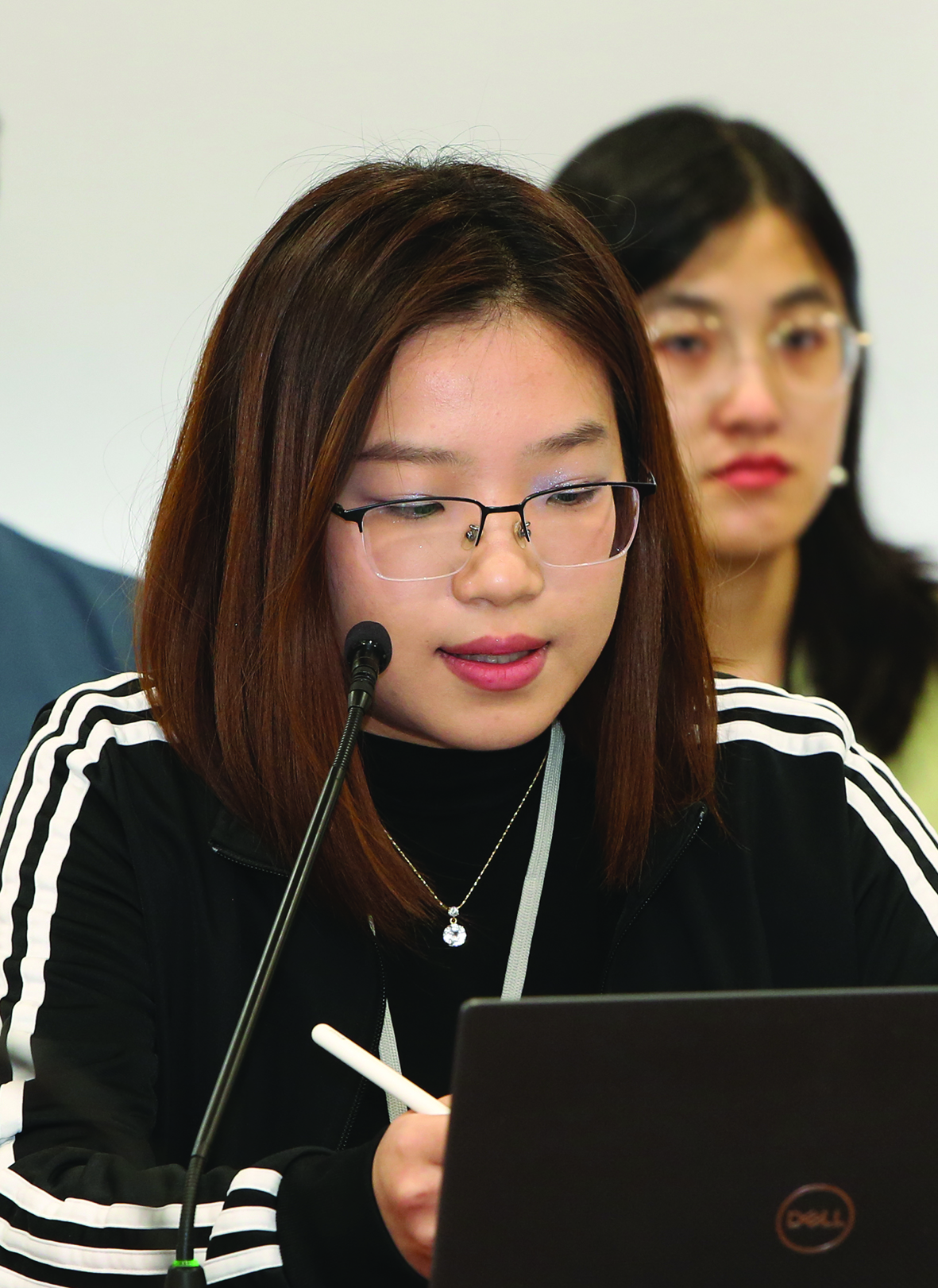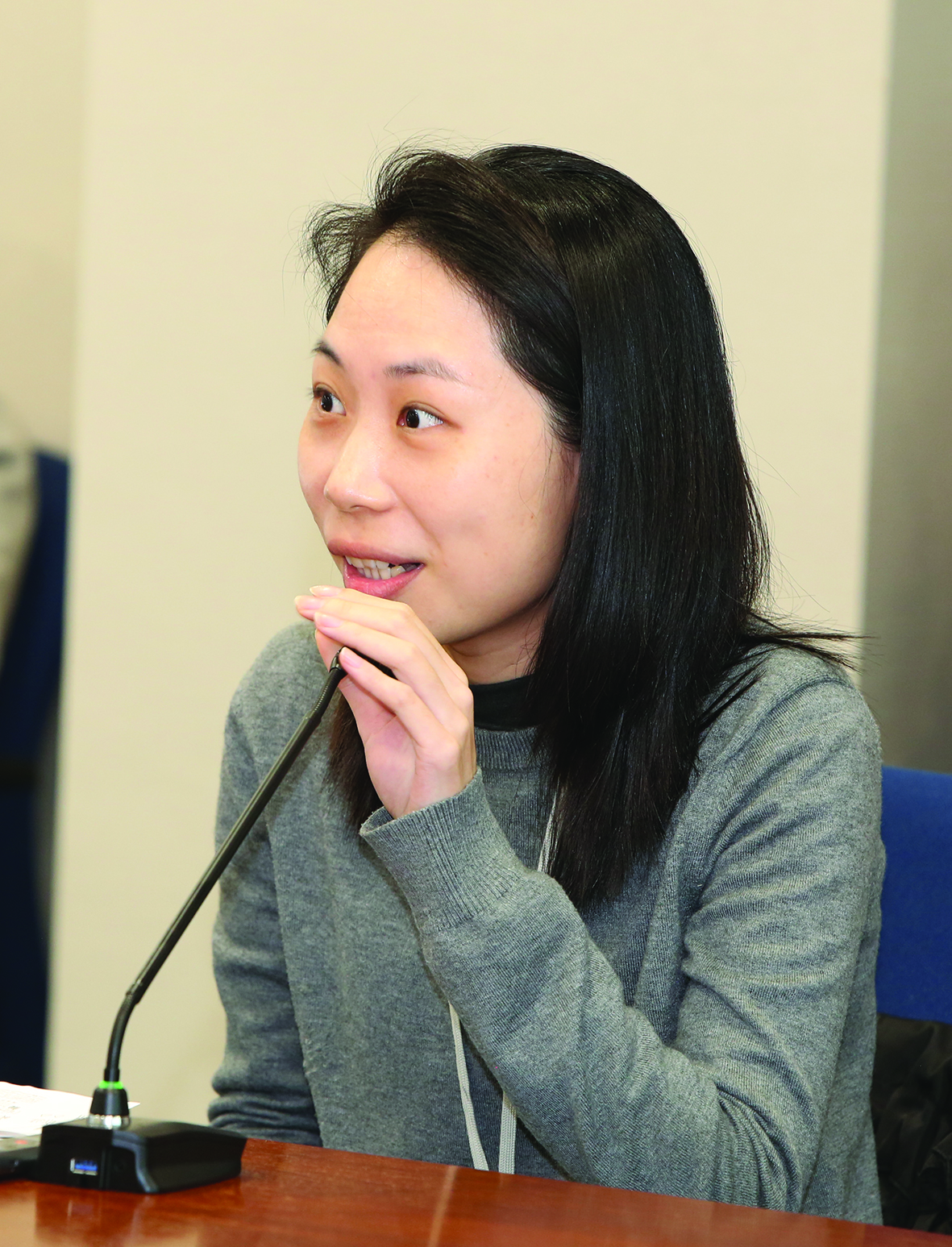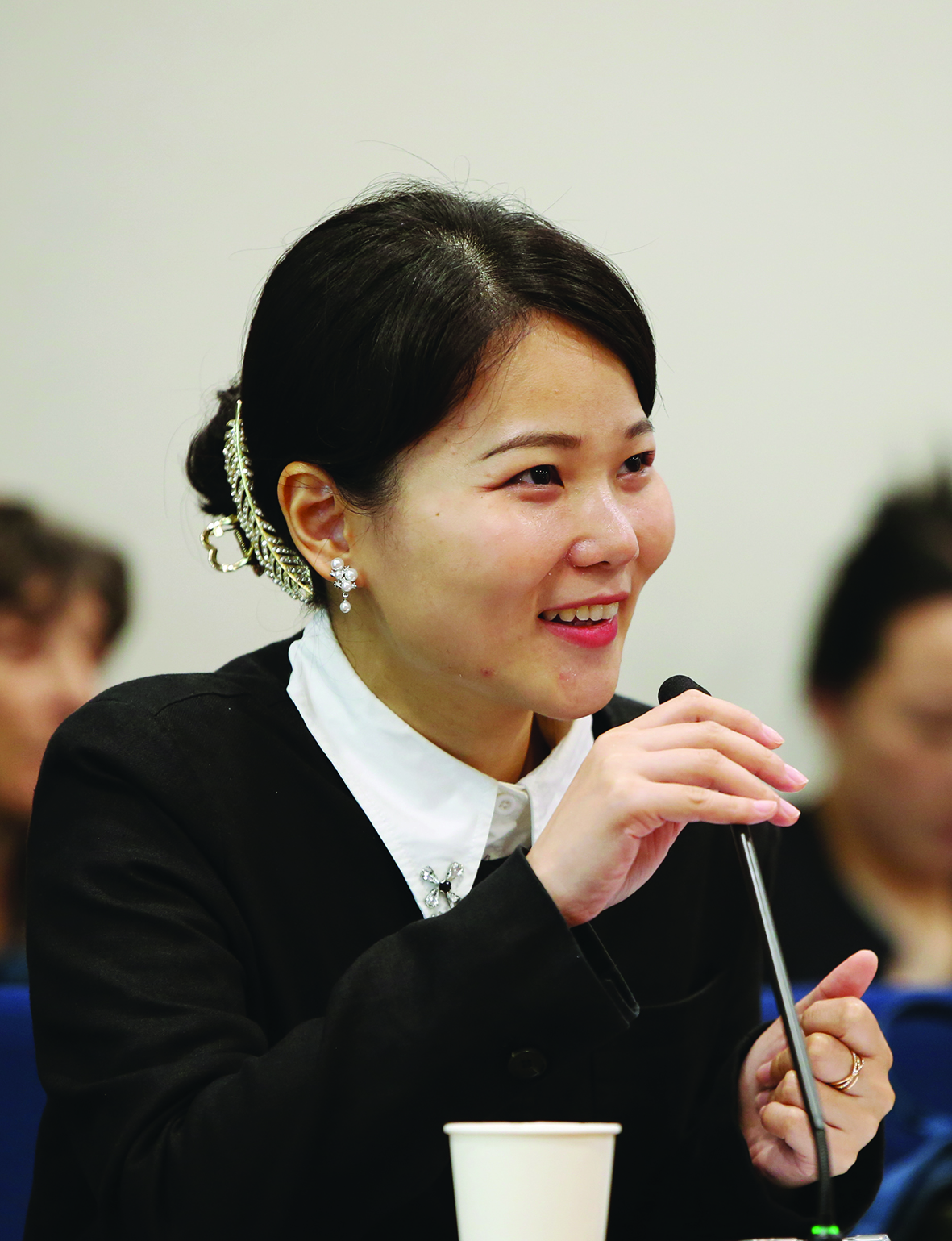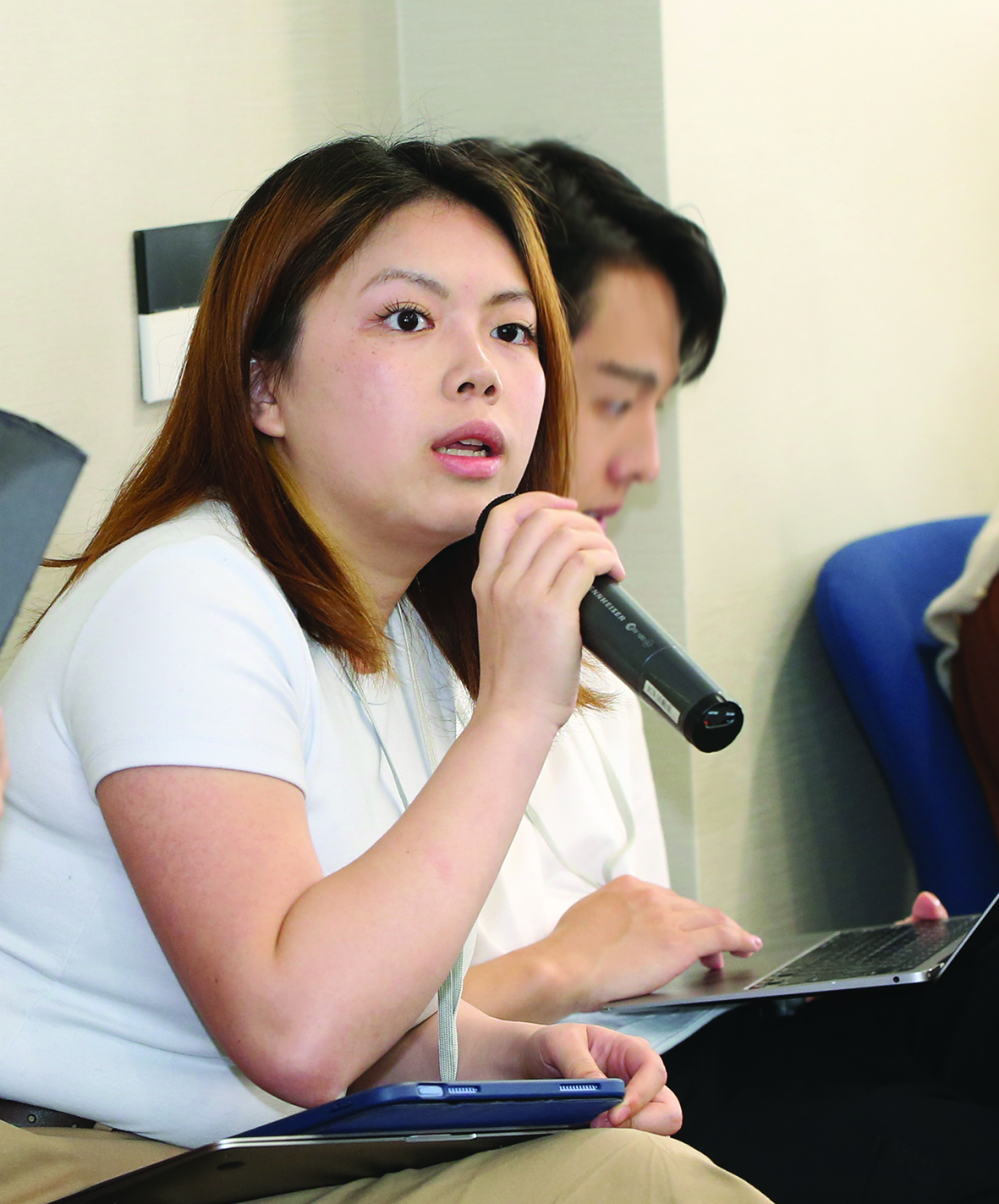The Forum aims to nurture young scholars in Chinese Studies and strengthen their academic networks. With the theme “Waterways and Global China: Ecology, Agency, and Cultural Formation”, this year’s forum invited a total of 26 young scholars to present their research papers. The papers were divided into eight panels scheduled over a period of two days, including 1. Transmission of Religion Through Waterways; 2. Maritime Interactions and Civilisational Encounters; 3. Water Management and State Governance; 4. Border-crossing Institutions and Identities; 5. Mobile Agents and Globalization; 6. Waterborne Cultural Production; 7. Trade Ports and Nautical Knowledge Circuit; and 8. Water in Literature, Art and Philosophy.
Esteemed professors from both CUHK and other universities were invited to serve as discussants. CUHK faculty members include Prof. Paola Calanca from the École française d’Extrême-Orient, Hong Kong, Prof. Cui Wendong from the Department of Chinese Language and Literature, and Prof. Lai Chi Tim from the Department of Cultural and Religious Studies. External moderators include Prof. Hon Tze Ki from Research Centre for History and Culture at Beijing Normal University at Zhuhai, Prof. Tsui Lik Hang from the Department of Chinese and History at the City University of Hong Kong, and Prof. Ye Jia from the Department of Chinese Language Studies at the Education University of Hong Kong.
The Forum received 157 applications this year. The final group of participants reflected diverse regional backgrounds: nine from mainland China, five from the U.S.A. and Canada, three from Europe, two from Australia, four from other parts of Asia, and three from Hong Kong. This international turnout highlights the Forum’s efforts to enhance global communication in the field of Chinese studies.
As a medical historian, the topic of “waterways” didn’t immediately strike me as one that directly intersects with my research. However, attending the Young Scholars’ Forum 2025 turned out to be an unexpectedly enriching experience. It offered a rare opportunity to step outside the usual boundaries of my field and engage with scholars working in very different domains. These encounters provided me with fresh perspectives and constructive feedback on my ongoing work, and they offered insights I would not have arrived at within my regular academic circles.
More specifically, I was fortunate to meet professors with deep expertise in Cantonese culture and history, which proved directly relevant to several themes in my dissertation. In particular, Professor Lai Chi Tim’s insights into Lingnan religious traditions were especially illuminating. His guidance helped clarify lingering questions I had about the role of religious rituals in Cantones society during times of epidemic crisis. He encouraged me to approach these practices from a cultural and descriptive perspective, rather than through a theological or analytical lens. This reframing has already led me to reconsider aspects of my dissertation design and explore new interpretive strategies for engaging with unfamiliar religious material.
I also want to express my sincere appreciation for the generosity and thoughtfulness of the organizing department. From the outset, the logistical arrangements were impressively smooth and professional. The Forum’s support for early-career scholars—including transportation reimbursement—was deeply appreciated and, as my supervisor pointed out, unusually generous.These gestures made a tangible difference in making the event accessible and inclusive.
Overall, the Forum broadened my understanding of how diverse social and cultural histories intersect and provided a supportive platform for young scholars to connect with and learn from more senior academics. I’m truly grateful to the organizers for creating such a vibrant academic space, and I look forward to staying connected with the colleagues and ideas the event introduced to me.

Lu XiaoyaDepartment of Music, University of Chicago, US
The Young Scholars’ Forum in Chinese Studies 2025, held for two days, was centered around the theme “Waterways and Global China: Ecology, Agency, and Cultural Formation”. Despite the short duration, the forum delivered a compact yet intellectually rich academic event. With its diverse topics and interdisciplinary scope, the forum fully demonstrated the theoretical potential and practical value of “water” as a vital medium connecting research on Global China. The forum featured eight thematic panels, covering a wide range of topics such as religious dissemination and maritime civilizations, the political dimensions of water and state formation, the materiality of river governance, and the mobility and agency of water-based communities. These discussions drew on multiple academic disciplines, including history, sociology, and religious studies, and highlighted the possibilities of interdisciplinary dialogue within water-related research. In particular, studies focusing on waterborne people, such as migrants, labourers, and intermediaries, offered crucial perspectives for understanding marginality, mobility, and agency. These research angles effectively respond to the growing scholarly interest in mobility, identity formation, and transnational interactions in the humanities and social sciences.
As a participant, I felt truly honoured to take part in this forum. More importantly, I greatly benefited from engaging in deep academic exchanges with the participating professors, such as Prof. Lai Chi Tim, Prof. Ye Jia, Prof. Paola Calanca, Prof. Tsui Lik Hang, Prof. Hon Tze Ki, and Prof. Cui Wedong, as well as fellow young scholars. Many valuable suggestions were shared during the discussions. There were also insightful discussions on how to better integrate fieldwork data and historical materials into theoretical analysis. These comments have been immensely helpful in shaping my current writing and research framework. This Forum was not only a platform for the exchange and collision of ideas but also a source of innovative academic thinking. The multidimensional exploration of water-related issues reflected the shifting paradigms in contemporary humanities and social sciences. For early-career scholars like myself, such high-density, and highly interactive academic events are extremely valuable. They not only foster deep dialogue within and across disciplines but also provide an important platform for young researchers to grow and present their work. Finally, I would like to extend my heartfelt thanks to Prof. Lai and all the organizing committee members for their dedication and hard work and I sincerely wish the Forum’s continued success and growth in the future!

Huang ZhengSchool of Humanities, Nanyang Technological University, Singapore
“Offline communication can never be replaced”—this was my greatest takeaway from participating in the 2025 Forum. In an era where online events are so frequent, do scholars still need to sit face-to-face to listen to presentations on similar or different topics? Do scholars still need to travel from all over the world to the CUHK campus, overlooking Tolo Harbour and gazing at the Pat Sin Leng mountain range? Do scholars still need to hone their bilingual presentation skills in both Chinese and English? My answer to all these questions is a resounding yes.
At this year’s Forum, I met scholars from Australia, New Zealand, Canada, the United States, Singapore, Japan, the UK, France, China, and many other places around the world, each with diverse academic backgrounds. They had all brought their research, standing out from thousands of submissions, to gather here. What impressed me the most were the many “gems from other mountains”—whether in the same research field or not, the inspiration sparked by each other’s comments and suggestions was far more interesting and comprehensive than what I could achieve through solitary contemplation. I remember Cheng Chun asking on-site how
shuike handled complaint cases, Xu Ning offering insights into my research from a Ming dynasty occupational perspective, Daisy raising the key question of professionalization among
shuike, Prof. Hon Tze-ki commenting on the deeper implications of our panel’s theme, Prof. Ye Jia expressing keen interest in the Hakka argot, and Prof. Lai Chi Tim mentioning different circumstances in Kaiping’s
qiaoxiang...These details continuously enriched my perspective on my current research and prompted me to expand my knowledge, learning about the progress of various water-related research topics such as dragon boats, “one ocean, one temple”, Qin and Han seals, pirates, Cantonese opera, female folk performers, compradors, Chongming Island, bacteriology, and more. In just two days, the gains were immense.
In addition, this was the first time I experienced such meticulous preparation by the organizers— providing dedicated Wi-Fi accounts, temporary library cards, and more. At the CUHK library, I also discovered many collections relevant to my research, all of which became unforgettable memories from this trip.

Xu NingSchool of Chinese, The University of Hong Kong, Hong Kong
Water, surging forth since time immemorial, carries within its currents the memories and narratives of human civilization. At Young
Scholars’ Forum in Chinese Studies 2025, “waterways” emerged as an intellectual lever for rethinking “Global China”, sparking vibrant scholarly explorations of ecology, agency, and cultural formation.
Young scholars from across the world mirrored one another’s perspectives through the prism of water. Some traced the footsteps of “
shuike 水客”, examining media and cultural fusion across aquatic boundaries; others delved into migration histories, interpreting diasporic journeys and processes of symbiotic adaptation; still others pursued “cultural drift”, seeking traces of spiritual homelands lost and reclaimed. The perpetual flux of water serves as an illuminating element in this regard, shedding light on the human trajectories that have been charted across the various crossings and transformations that define our existence. In a period of merely two days, the presenters produced 26 thought-provoking papers, which combined scholarly debate, reinterpretation, and ultimately, a poetic synthesis through “visual meditations on water”.
The intellectual exchanges during the forum were particularly remarkable. Generations of scholars engaged in rigorous yet collegial dialogue, their critiques flowing like living water—each reflection deepening insights into their research. As the sole women’s historian present, I had assumed my gender-focused inquiry would resonate little. Yet to my surprise, the discussions yielded great insights. The project had a significant impact on my professional output, while also highlighting the inclusivity of the “water routes” concept, which facilitates the integration and mutual reinforcement of diverse perspectives.
It is evident that the application of the lens of waterways has served to reinvigorate the examination of a wide range of subjects, thereby facilitating the emergence of novel societal insights and a humanistic depth that has been previously unattained. The organizers of this event are to be profoundly thanked for their scholarly vision and generosity, which resulted in the establishment of a meaningful conceptual anchor and fertile ground for exchange. The event can be likened to the gentle, refreshing rain that nourishes the land in spring, providing a sense of revitalization to all those present.
















